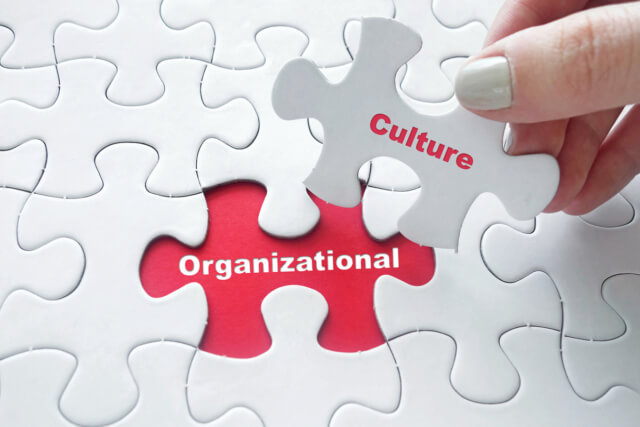Why Culture-Fit Matters in Talent Acquisition

September 13, 2023
Understanding the importance of culture-fit in talent acquisition can fundamentally transform business success. A strong cultural fit not only invigorates the workplace but significantly improves employee retention rates, shaping the pillars of a thriving organization.

Every business embodies a unique culture, a blend of its values, beliefs, and operational nuances. Today, talent acquisition is experiencing a shift. It’s no longer solely about aligning a candidate’s skills and experience with the job requirements. Instead, it’s also about finding a cultural fit – a candidate who won’t just perform well, but will seamlessly integrate into the company’s existing ethos. The importance of this cultural fit in talent acquisition can significantly impact the success of both the organization and the individual.
What is culture-fit?
When we talk about “culture-fit,” we’re looking beyond the traditional framework of skills and qualifications. Instead, we’re delving deeper into the realm of values, beliefs, and attitudes that form the very backbone of an individual’s work persona. Culture-fit is about synergy between these individual attributes and the core ethos of an organization.
In the recruitment process, the role of cultural fit can’t be understated. It plays a pivotal part in determining not just who gets hired, but also how well they integrate into the team and contribute to the organization. Hiring for culture fit ensures that a new recruit is not just able to do the job, but also aligns well with the company’s values, work style, and team dynamics.
Think of it as piecing together a complex puzzle – the individual pieces (the employees) need to fit together just right to reveal the bigger picture (the organization’s goals and mission). This goes beyond having the right shape (skills and qualifications); the colors and patterns (values, beliefs, and attitudes) need to align too.

Reasons why cultural fit is important
1. Harmonious work environment
Workplace culture is more than just a set of shared norms and values. It’s the lifeblood of an organization, influencing every interaction, decision, and process. When employees’ values align with those of the company, a harmonious work environment naturally follows. This harmony stems from shared understanding, smoother communication, and mutual respect, which in turn foster collaboration and teamwork.
Consider a boat rowing team. When everyone rows in unison, in the same direction, the boat moves forward swiftly and smoothly. Similarly, in an organization, a harmonious work environment achieved through cultural alignment can steer clear of workplace culture conflicts. This synchronization significantly aids in propelling an organization towards its goals more effectively.
2. Enhanced employee engagement
Cultural fit also plays a significant role in driving employee engagement. When employees feel they are part of a culture that reflects their own values and beliefs, a sense of belonging and ownership develops. This sense of belonging is a powerful motivator, boosting not only productivity but also fostering innovation and creative problem-solving.
Imagine working in an environment where you feel seen, heard, and valued – where your work aligns with what you believe in. You’re naturally more motivated, engaged, and committed, aren’t you? This is the power of cultural fit in boosting employee engagement.
3. Reduced turnover
One of the most impactful aspects of cultural fit is its ability to reduce employee turnover. When employees resonate with the company’s culture, they feel valued, content, and are less likely to seek opportunities elsewhere. This strong cultural fit plays a crucial role in increasing employee retention, which can have a significant impact on a company’s bottom line.
Why is that? Consider the costs associated with employee turnover – from recruitment and onboarding expenses to lost productivity and training costs. By reducing turnover, a strong culture-fit not only brings stability to your workforce but also financial benefits to your organization.

4. Preservation of company values
The role of cultural fit in preserving company values is another reason why culture-fit matters in hiring. When you bring onboard individuals who align with your company’s mission and vision, it helps ensure that your organizational values remain steadfast and unchanging.
As these employees continue their journey with the company, they embody these values, becoming ambassadors for your brand both internally and externally. The positive influence of this alignment can be seen in increased employee loyalty, higher productivity, and ultimately, long-term success for the organization.
5. Improved team dynamics
A cohesive culture is like a well-oiled machine – when all parts are in harmony, it performs efficiently. Cultural fit plays a significant role in fostering this cohesion. When team members share similar values and work ethics, it enhances communication, collaboration, and reduces misunderstandings.
Shared communication styles and norms within a team encourage open dialogue, promoting a positive work environment. This cohesive team culture can enhance problem-solving capabilities and spur innovation, creating a competitive advantage for your organization.
6. Positive customer experience
A company’s culture does not only impact its employees; it also resonates with its customers. When employees align with the company culture, it reflects in their service to the customers. They are more motivated, passionate, and committed, leading to better customer service and ultimately, a more positive customer experience.
When your organization’s values are lived out through your employees’ interactions with customers, it helps to create a customer-centric organization. The importance of cultural fit in such an environment cannot be overstated.
7. Innovation and adaptability
Lastly, let’s not forget the role of cultural fit in fostering innovation and adaptability. A diverse workforce, unified by a shared culture and values, brings together a multitude of perspectives. This diversity can lead to creative problem-solving and innovative solutions.
A strong cultural fit also contributes to an agile and responsive organization. When the team’s values are aligned, they can adapt more quickly to changes, be it in the market or within the organization. They can come together more effectively to overcome challenges and seize new opportunities, demonstrating the importance of cultural fit in talent acquisition strategy.

Infusing company culture and diversity into talent acquisition strategy
Embedding your company’s culture and principles of diversity into your hiring process can be a game-changer. Let’s explore how you can turn hiring for culture fit principles into actionable strategies, making your company a magnet for top talent.
1. Conveying company culture in recruitment materials
This involves more than stating your mission; it means giving a feel of what it’s like to work in your environment. Use your job descriptions and interviews as platforms to showcase your culture. The role of cultural fit is to attract people who will not just work for you, but thrive with you. Here are practical ways to reflect your company culture in your hiring process:
- Job descriptions: Use them to outline the values and mission of your organization. Share day-to-day experiences or stories that encapsulate your culture.
- Interviews: Ask questions that get to the heart of a candidate’s cultural fit. Ensure the interview process mirrors your company’s values. For example, if you promote open communication, use a conversational style in interviews.
2. Incorporating diversity, equity, and inclusion (dei) in hiring
Embedding DEI in your hiring process broadens your talent pool and enhances your company’s reputation. It sends out a powerful message about your commitment to fairness and equality. To foster DEI in your hiring process:
- Unbiased job listings: Use inclusive language in job descriptions. Avoid gender-specific terms, corporate jargon, or industry acronyms.
- Diverse sourcing: Expand sourcing channels. Reach out to minority professional organizations or websites.
- Standardize interviewing: Use the same set of questions for every candidate to ensure fairness.
3. Harnessing culture-fit for talent retention
Employees who resonate with a company’s culture tend to stay longer. They feel a sense of belonging, and they are more engaged and satisfied with their work. Here’s how culture-fit can support talent retention:
- Orientation programs: Use these to introduce new hires to your company’s values and culture.
- Regular feedback: Encourage managers to regularly discuss cultural fit with their teams.
- Employee surveys: Use these to measure how well employees think the company is living up to its stated culture.
4. Leadership’s role in upholding culture-fit
Leaders are the torchbearers of your company’s culture. Their actions and attitudes set the tone. Leaders should live the culture, embody the values, and inspire the same in others. To ensure leaders foster a culture-conducive environment:
- Lead by example: Leaders should live the values they expect their team to follow.
- Recognition: Praise employees who display the company’s values.
- Training: Equip leaders with the skills to manage diverse teams and maintain a culture where everyone feels valued.
Conclusion
In essence, cultural-fit is the puzzle piece that, when correctly placed, completes the intricate mosaic of your organization. Harnessing its power can propel your company to new heights, crafting a future driven by a diverse, engaged, and culture-aligned workforce. Recognizing the importance of culture-fit in talent acquisition is crucial in sculpting a harmonious work environment that fuels growth and innovation.
Tapping into specialized services like executive search can streamline this process, helping you zero in on high-caliber professionals who align with your organization’s ethos. Furthermore, partnering with experts in HR consulting services can refine your recruitment strategies, ensuring culture-fit and diversity are at the forefront.




